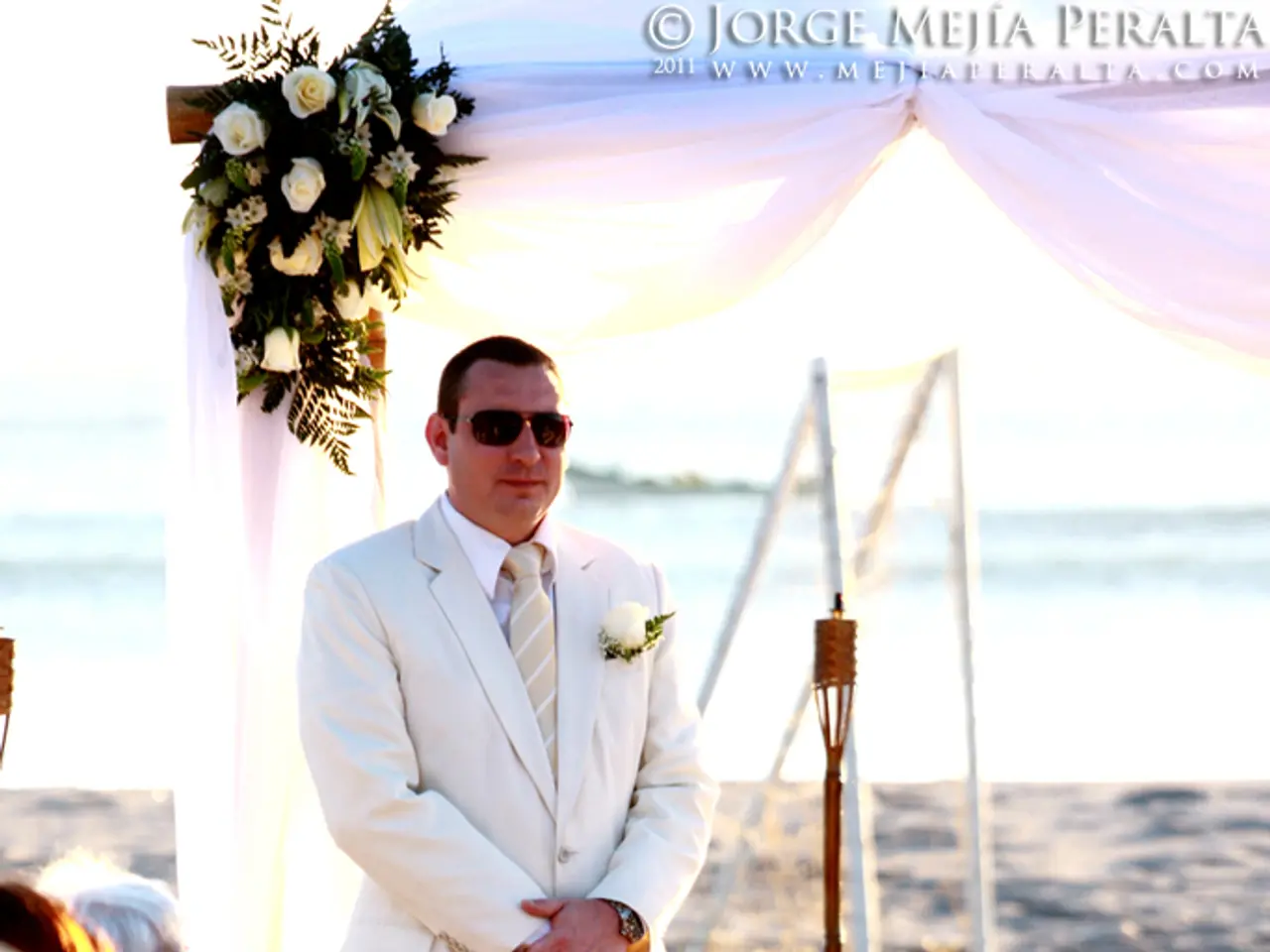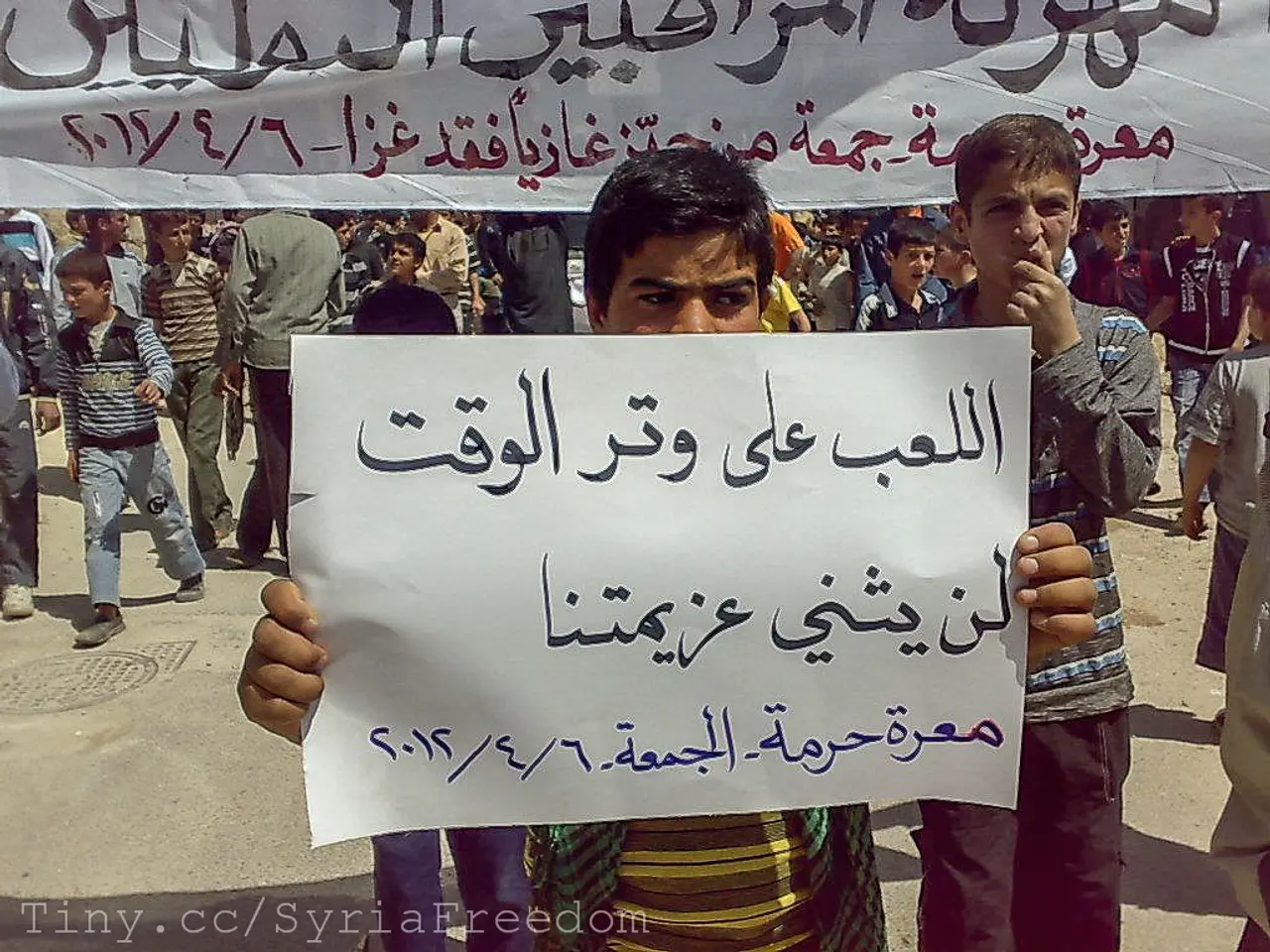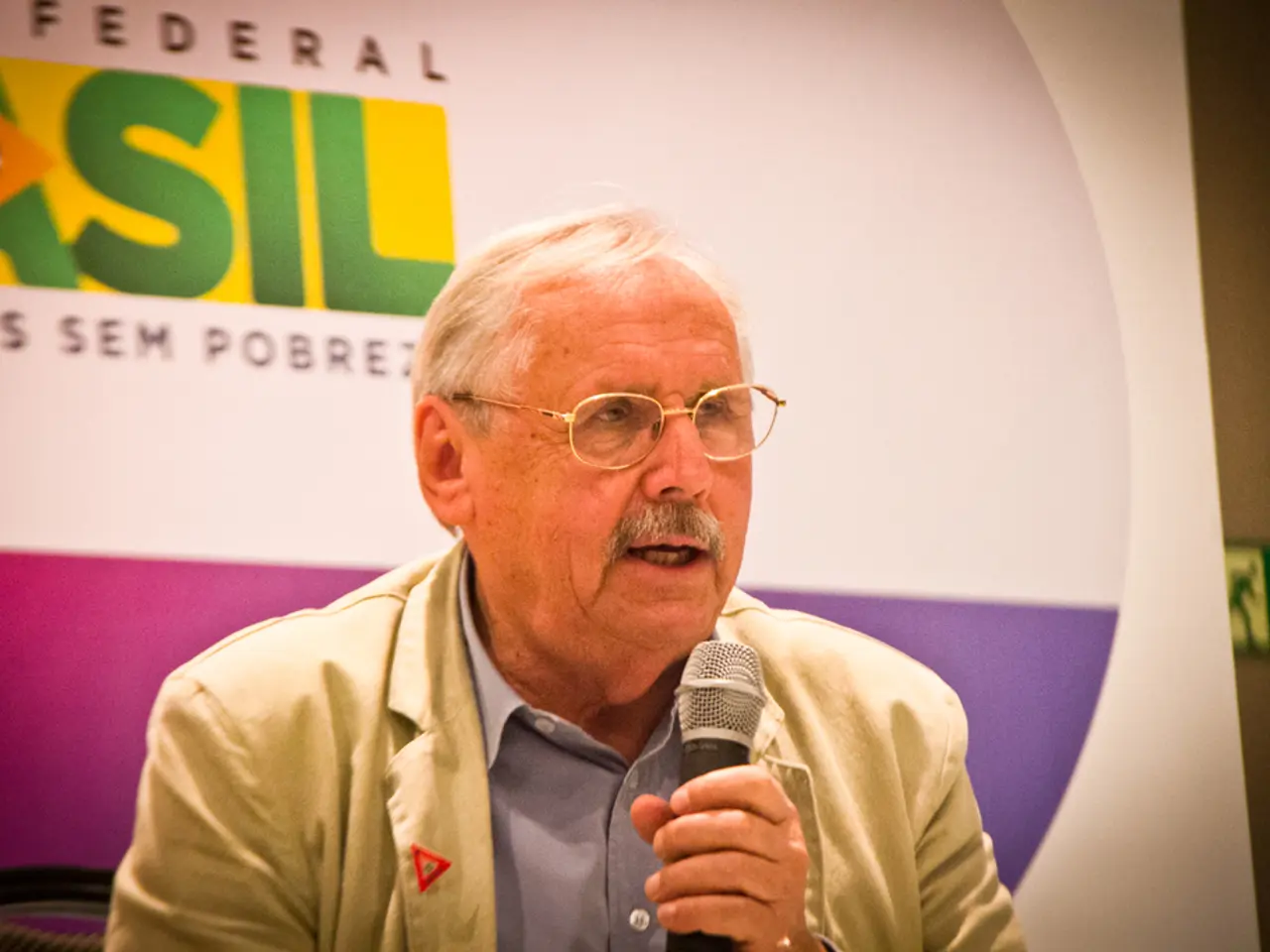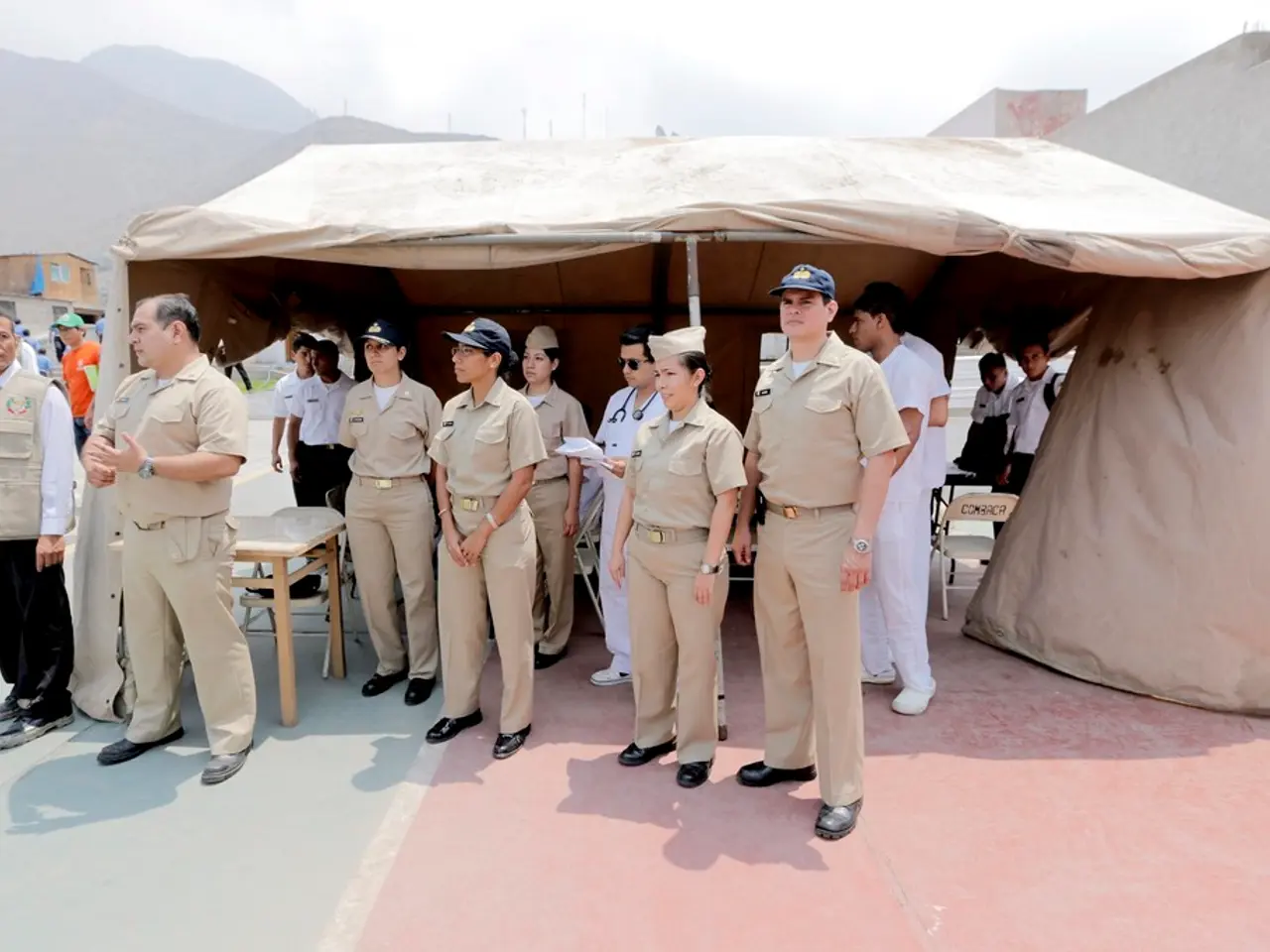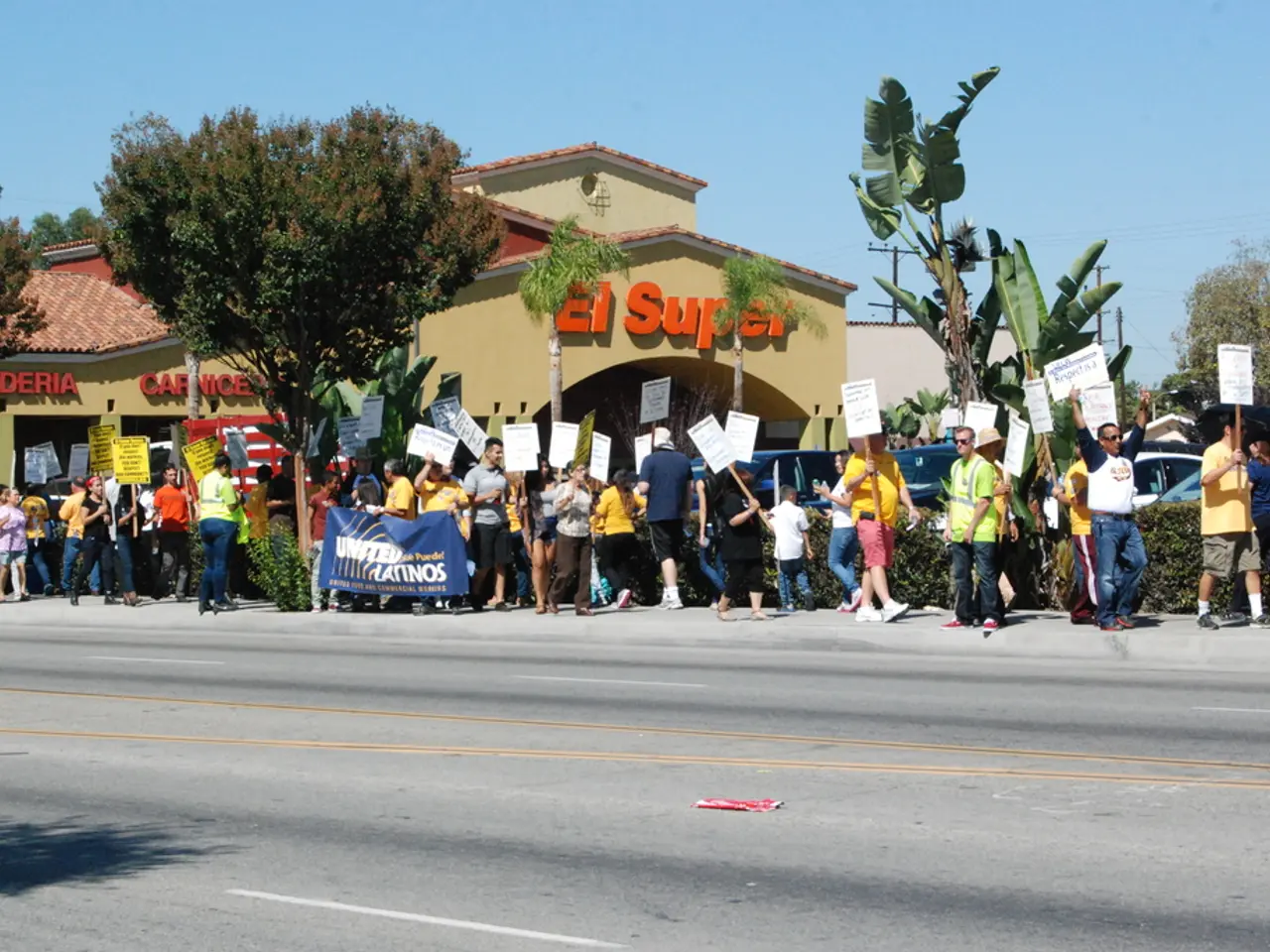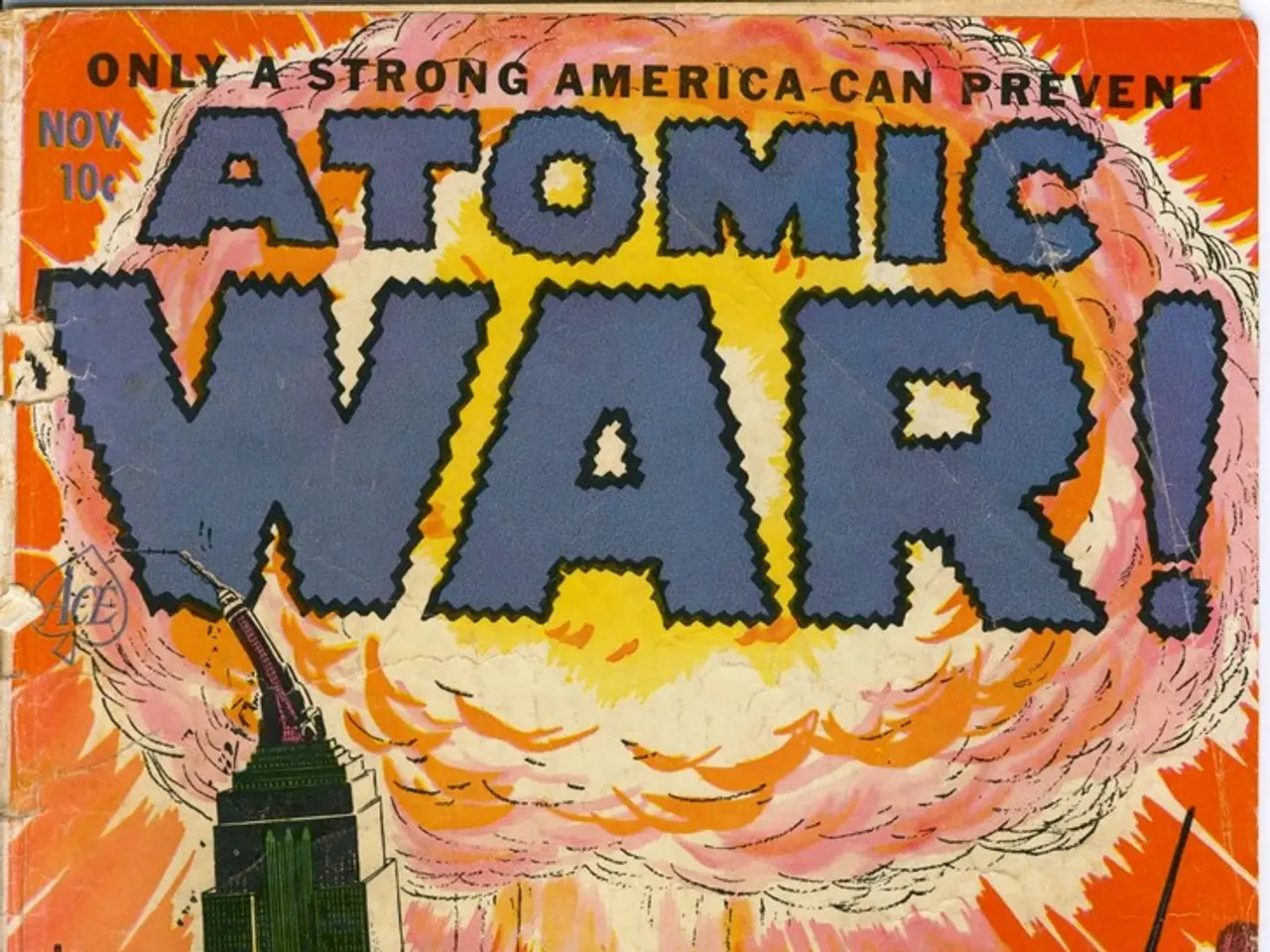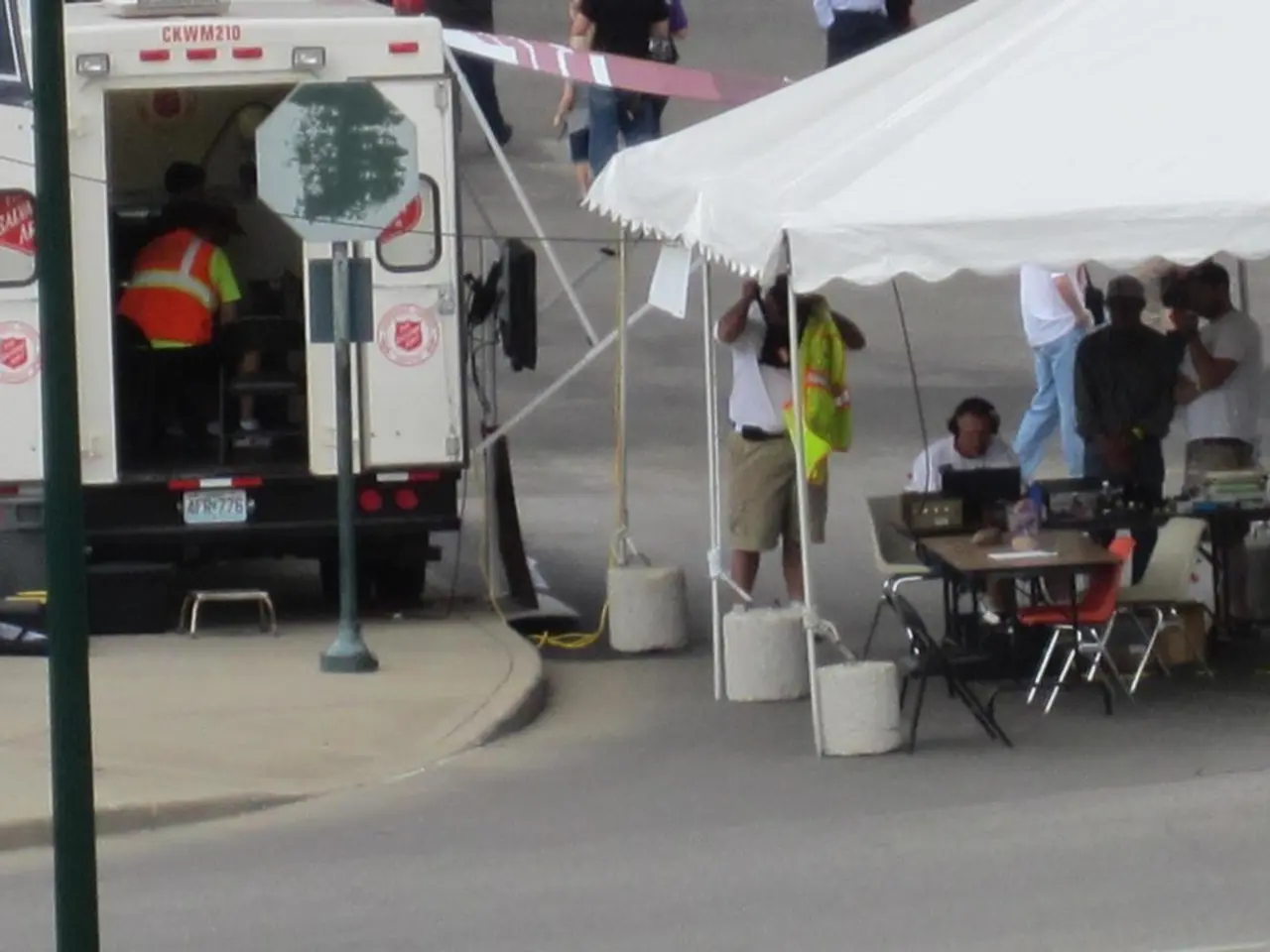Iran's Supreme Leader emerges in public for the first time since the conflict with Israel commenced.
In the heart of Tehran, Iran's capital, Ayatollah Ali Khamenei, the Supreme Leader, attended a mourning ceremony on the eve of Ashoura, marking the 7th century martyrdom of Prophet Muhammad's grandson, Hussein. This was Khamenei's first public appearance since the Iran-Israel war started, adding a layer of political significance to the event.
The ceremony, characterised by processions of chest-beating and self-flagellating men demonstrating fervor, was a poignant display of Shiite identity. In predominantly Shiite Iran, red flags represented Hussein's blood, and black funeral tents and clothes represented mourning. Some mourners were sprayed with water in the intense heat during the ceremony.
Hussein's death in battle at Karbala, south of Baghdad, created a rift in Islam and continues to play a key role in shaping Shiite identity. Shiites, who represent over 10% of the world's 1.8 billion Muslims, view Hussein as the rightful successor to the Prophet Muhammad.
Meanwhile, the status of Iran's nuclear program remains a cause for global concern. According to the International Atomic Energy Agency (IAEA), Iran has enough nuclear material for nine nuclear weapons if it enriches uranium to 90%, with Iran’s "breakout" time (time to acquire weapon-grade fissile material) estimated to be nearly zero. However, Iran has not yet moved towards weaponization, a process requiring several months or years to develop a deliverable nuclear weapon.
In June 2025, the IAEA Board formally declared Iran non-compliant with its nuclear safeguards obligations for the first time since 2005. In response, Iran accelerated its nuclear program. Analytical reports from May 2025 indicate Iran’s nuclear weaponization program is progressing quietly, away from inspectors, underscoring the urgent need to strengthen IAEA inspections to prevent Iran from acquiring a nuclear weapon.
Israeli strikes in mid-June 2025 targeted Iran’s nuclear facilities and personnel, curtailing the planned sixth round of indirect U.S.-Iran talks. The strikes are seen as a serious blow but not a definitive end to Iran's nuclear ambitions. The effectiveness of these strikes hinges on whether key sites and advanced centrifuges remain operational and the extent of covert sabotage efforts.
Future negotiations between Iran and the international community remain uncertain and fragile. Since late 2024, Iran has engaged in separate talks with European countries, China, Russia, and the United States, but the latest rounds of U.S.-Iran indirect talks began in April 2025 faced disruption after Israeli strikes in June 2025.
As of early July 2025, Iran reportedly plans to resume indirect nuclear negotiations with the United States, but the conditions Iran will demand are unclear, suggesting talks will be difficult and outcomes uncertain. The situation remains volatile, with no clear resolution yet in sight.
During the ceremony, Khamenei made no immediate statement regarding the current situation in Iran. Iranian officials such as the parliament speaker were present at the event. Iran has acknowledged the deaths of over 900 people and thousands of injuries during the war. On June 26, Khamenei made his first public statement in days, saying Iran had delivered a "slap to America's face" by striking a U.S. air base in Qatar.
Following the war, Iran's president ordered the country to suspend its cooperation with the International Atomic Energy Agency, further limiting inspectors' ability to track Iran's uranium enrichment program. Iran has confirmed serious damage to its nuclear facilities and has denied access to them for inspectors with the U.N. nuclear watchdog. The U.S. bombed three key nuclear sites in Iran, and U.S. President Donald Trump sent warnings to Khamenei via social media. Israel launched the war fearing that Iran was trying to develop atomic weapons.
The future of diplomatic efforts is tenuous, with indirect talks expected to resume but complicated by mutual distrust, regional hostility, and Iran’s accelerated nuclear activities. The situation remains volatile, with no clear resolution yet in sight.
- The political significance of Ayatollah Khamenei's attendance at the mourning ceremony in Tehran was heightened by the ongoing war-and-conflicts between Iran and Israel, which had sparked global concerns about Iran's nuclear program and general-news.
- Amidst the backdrop of Hussein's death in battle and the poignant display of Shiite identity during the ceremony, Iran's political leaders and officials were confronted with politics that intertwined with religious practices, adding complexity to the nation's war-and-conflicts and general-news stance.
